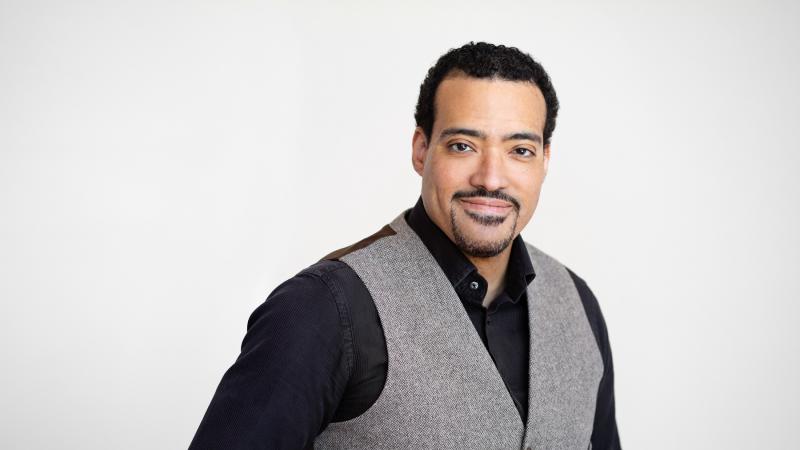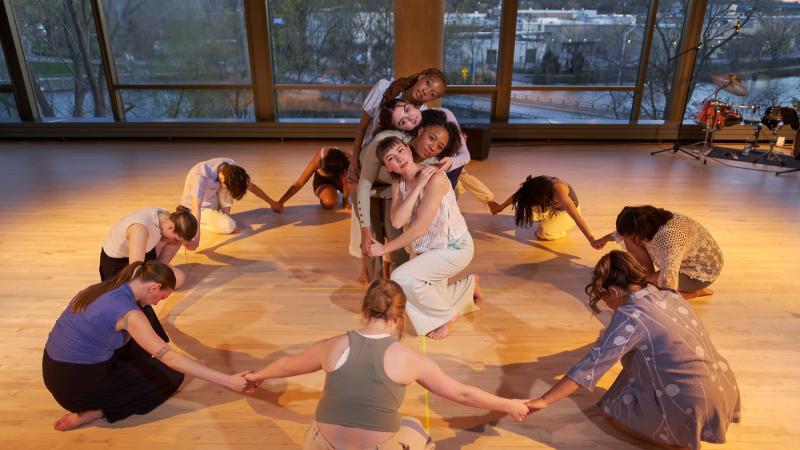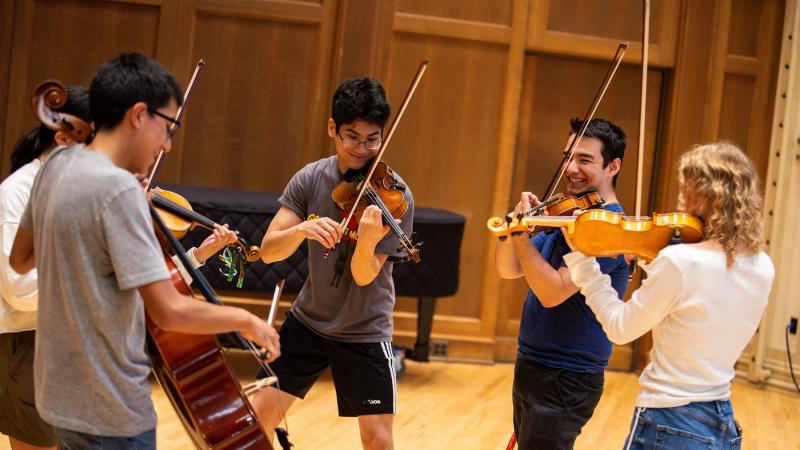Imani Williams wants to make sure Black Student Union (BSU) is helping to ensure that BIPOC students at Lawrence feel celebrated and supported year-round.
“I think because we’re back on campus this year, our huge focus is community,” said Williams, co-president of the student organization. “When I was a freshman, I feel like all the Black students knew each other, but then COVID hit, and there was a disconnect from the sophomores and now the current freshmen. It was about reestablishing those connections, but also connecting with the entire campus as a whole.”
Williams, a junior from Waukegan, Illinois, is majoring in psychology and Spanish.
Earlier this year, we wrote about BSU Co-President Amaka Uduh and her role in planning BSU’s Black History Month celebrations. Today, we tell the story of Williams, the other face of BSU.
As co-presidents, Williams and Uduh make a good team. While Uduh is all about big ideas and event programming, Williams dots the Is and crosses the Ts, making sure that BSU can achieve the maximum benefits given their resources. She knows the ins and outs of Lawrence and LUCC rules and regulations, is always ready to lead weekly BSU meetings, and doesn’t mind sending some emails. Together, Williams and Uduh can lean on each other, distributing the workload fluidly and playing to their own strengths while also stepping up when needed.
After all, stepping up to meet a need is how they became co-presidents in the first place. While Williams and Uduh served on the BSU board during their sophomore years, as treasurer and vice president, respectively, they both knew their junior years would be packed. It wasn’t the plan to run for BSU president—but someone needed to step into the role.
As an upperclass student, Williams felt she had a responsibility to support first- and second-years the way she had been supported when she first arrived at Lawrence. Although serving as the head of one the most active groups on campus was a major undertaking, BSU was too important for Williams to sit back.
“I think as Black and Brown students coming to a predominantly white institution, it’s always intimidating,” Williams said. “You’re more than likely by your freshman year to be the only person of color in a room full of people who don’t look like you or who don’t have similar backgrounds as you. Going to the [BSU] meetings and just being around people who can understand you in ways that other people can’t was very important in making me comfortable on campus.”
Now that she’s co-president, it’s not just other BSU members that Williams is supporting. She believes that BSU can use its influence to promote fellow student diversity organizations at Lawrence.
As one of the biggest organizations on campus in terms of active members, BSU has the ability to bring out the numbers to events coordinated by smaller organizations, and they are always looking for opportunities to be “stronger together.” As part of Black History Month, BSU collaborated with the Pan-Asian Organization to host “Candles for Cuties,” a relaxing candle-making event that drew 30 student participants. Likewise, BSU regularly collaborates with the Diversity & Intercultural Center and is eager to join forces with other BIPOC organizations on campus.
“All of the BIPOC orgs have such meaningful messages to them, and if BSU brings the numbers, more people will pay attention,” Williams said. “I think that’s important.”
Moving forward, BSU plans to host events that bring the campus community together to celebrate Black people and culture, while also remaining a space where BIPOC students feel safe and empowered. A variety of events are already in the works for Spring Term, including BSU’s annual cookout and a new cultural festival to highlight the diversity of Black and Brown identities.
One thing is for sure: Williams, as well as the rest of the BSU board—Uduh, Co-Vice Presidents Brianna Carvalho and Kyree Allen, Event Coordinator Gabby Holder, Secretary Savon Williams, Treasurer Willie Sturgis, and Historian Nathanial Smith—will continue to prioritize the empowerment of Black students all year long.
“I think being Black should be a thing that you identify with all the time and that you’re constantly proud of, and not just for whatever month, but every day,” Williams said.



